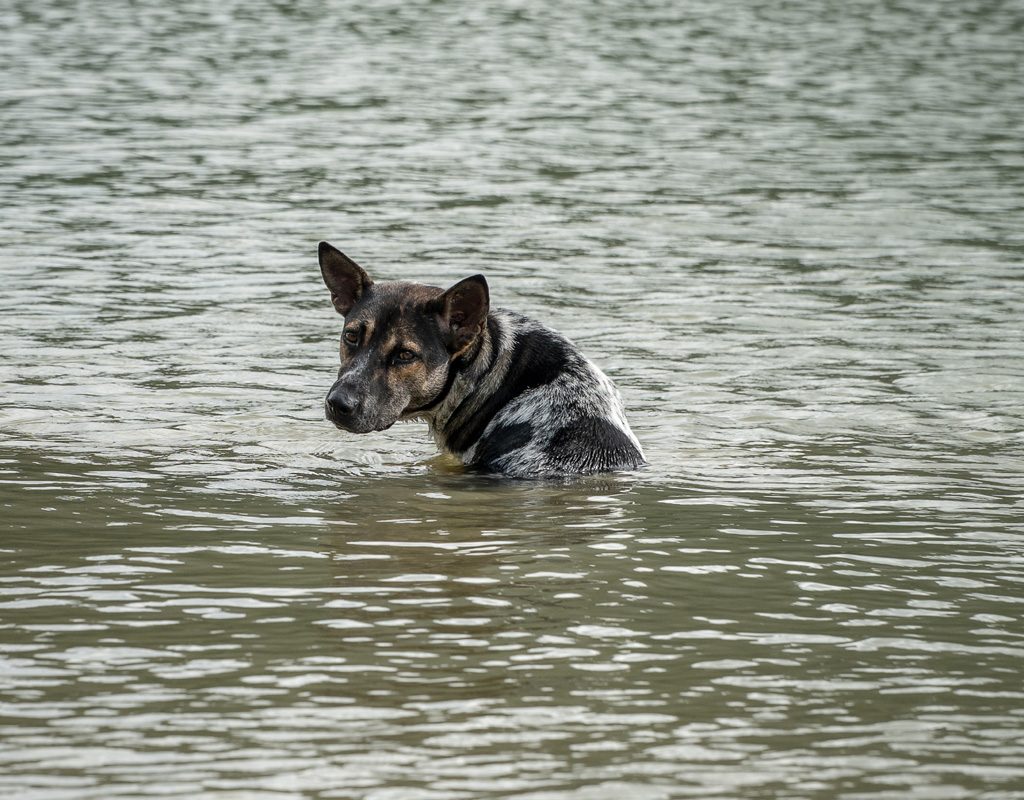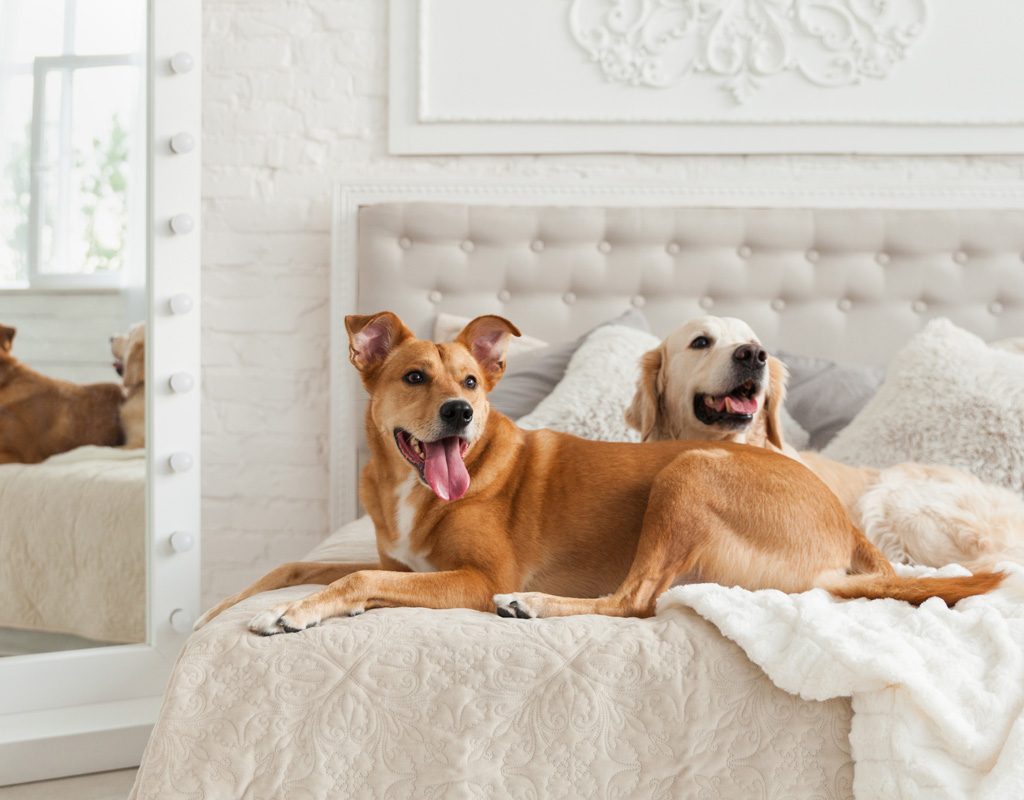The images of pets left behind during Hurricane Katrina in August 2005 were heartbreaking: terrified dogs stranded on rooftops, anxious pets peeking through attic windows, and exhausted dogs struggling to keep their heads above floodwaters as they desperately searched for dry land. An estimated 250,000 pets were stranded during Katrina, and between 70,000 and 150,000 animals died. Many lessons were learned in the aftermath of this Category 5 hurricane, including how to care for pets in a natural disaster. Following are eight essential things you need to know about pets and hurricanes so you can be prepared if the worst is coming your way.
1. Federal law includes pets in rescue plans
In 2006, Congress passed the Pets Evacuation and Transportation Standards Act. It requires that state disaster preparedness and evacuation plans include pets in rescue efforts during natural disasters. It also authorized the use of federal funds for pet-friendly emergency shelters when needed. While each state may handle emergencies differently, most include animal care and response teams, evacuation shelters, and identification of rescued animals as part of their emergency preparedness strategy. You can visit your state’s office of emergency management website to view what strategies they have in place to help pets in an emergency.

2. Always keep contact information current
In the event you’re separated from your pet during a hurricane, it’s essential to have ID tags and microchips current. If your pet isn’t microchipped, your veterinarian or local animal shelter probably offers microchipping services. Be sure to register the chip online.
3. Create an emergency pack
Put together a pet emergency pack and keep it in a designated area so you can quickly grab it when needed. The kit should include:
- Enough food and water for five days
- Pet medications along with medical information sealed in a waterproof container
- Contact information for your veterinarian
- Current photographs and detailed descriptions for your pets
- Relevant information about feeding, medical requirements, and any behavioral issues
- Leashes, harnesses, and carriers
- A litter box and litter, paper towels, moist wipes, and garbage bags
- A pet first aid kit. You can create your own or purchase a kit online.
4. How to keep your pet safe during a hurricane
While it’s perfectly normal to want to hold your pet close when a disaster happens, rescue experts from the Humane Society of the United States (HSUS) say that in an emergency, this is a mistake. During a natural disaster, pets will be confused and scared and not acting as they normally would. Their instinct will be to run and hide just when you need to get them to safety. In an emergency, pet owners should stay calm while keeping pets leashed or safely confined in a carrier. The HSUS offers tips on how to get a variety of animal companions to safety during a hurricane.
5. If you evacuate, take your pets
If it isn’t safe for you to remain in your home, then it isn’t safe for your pets, according to HSUS animal rescue experts. Once you leave, you don’t know when you’ll be allowed back to your pets. Animals left behind in a disaster can easily be injured, lost, or killed.
6. Evacuate early with pets
Pay close attention to the local weather forecast and emergency alerts. Pet owners need to evacuate before there’s a mandatory evacuation order. Remember, once the hurricane hits, animals are likely to be scared by the wind and thunder, making it more difficult to get them to safety. Evacuating before the weather becomes severe will be safer and less stressful for everyone.
7. Plan ahead for a safe place to stay
Even if pets are allowed in your state’s emergency shelter, these facilities will fill up quickly during a disaster. It’s best to be prepared by creating a list of pet-friendly accommodation options in advance. This could include friends or relatives who agree to care for your pets in an emergency. You can also reach out to hotels and motels outside your immediate area to ask if they accept pets. Many hotel brands with “no pet” policies make exceptions in the event of local disasters, so be sure to ask. You can search for pet-friendly hotels within 100 miles of your current location at Petswelcome. The HSUS also provides a list of websites that feature pet-friendly hotels and motels.

8. What to do if you have to wait out the hurricane
If you do have to wait out the hurricane at home, find a safe area of your house and keep people and pets together. Take your emergency kits with you, close off any unsafe nooks where cats could hide, and make sure the area is free of toxic products. Monitor the local news from your cellphone or radio, and don’t come out until you know it’s safe.
In the aftermath of a hurricane, your house and neighborhood will quite likely look and smell different. This can be disorienting for your pets, so keep them leashed or confined to carriers while you check out the damage. Your pets may exhibit behavioral problems after the stress of a hurricane. In extreme cases, they might need to visit a veterinarian. The sooner you can get your pets back to their normal routine, the happier they will be.




